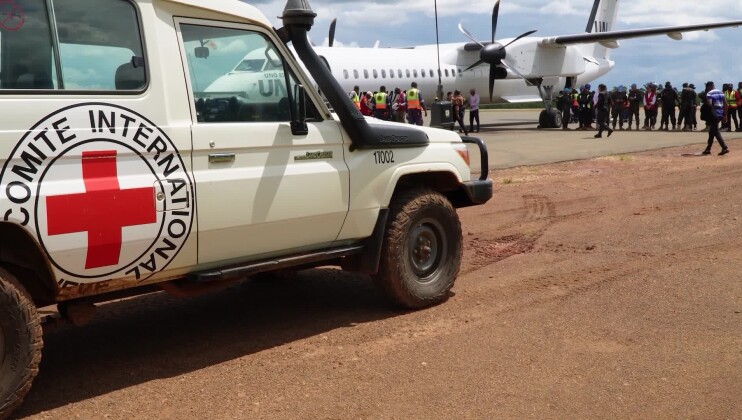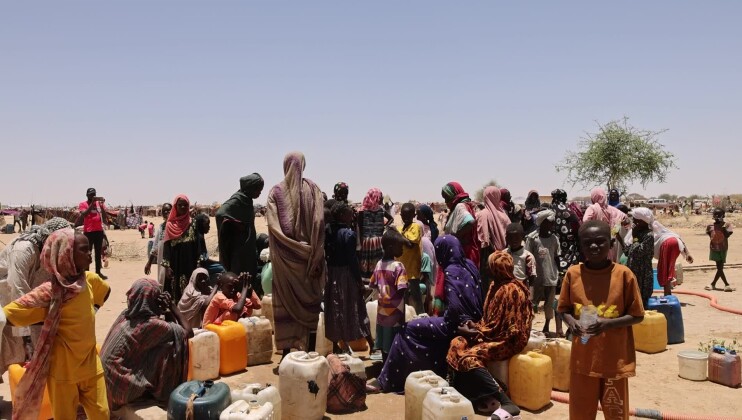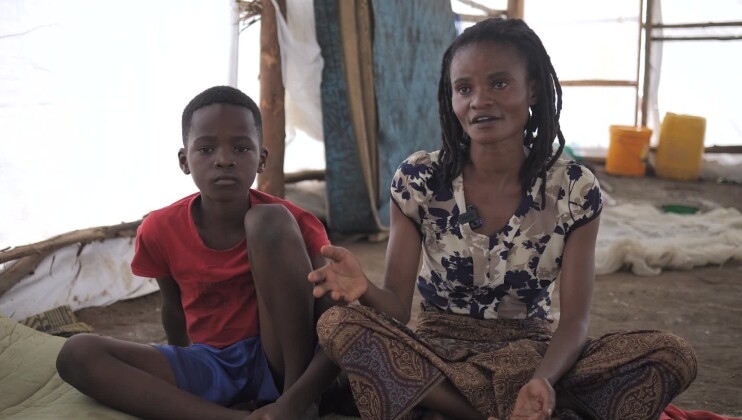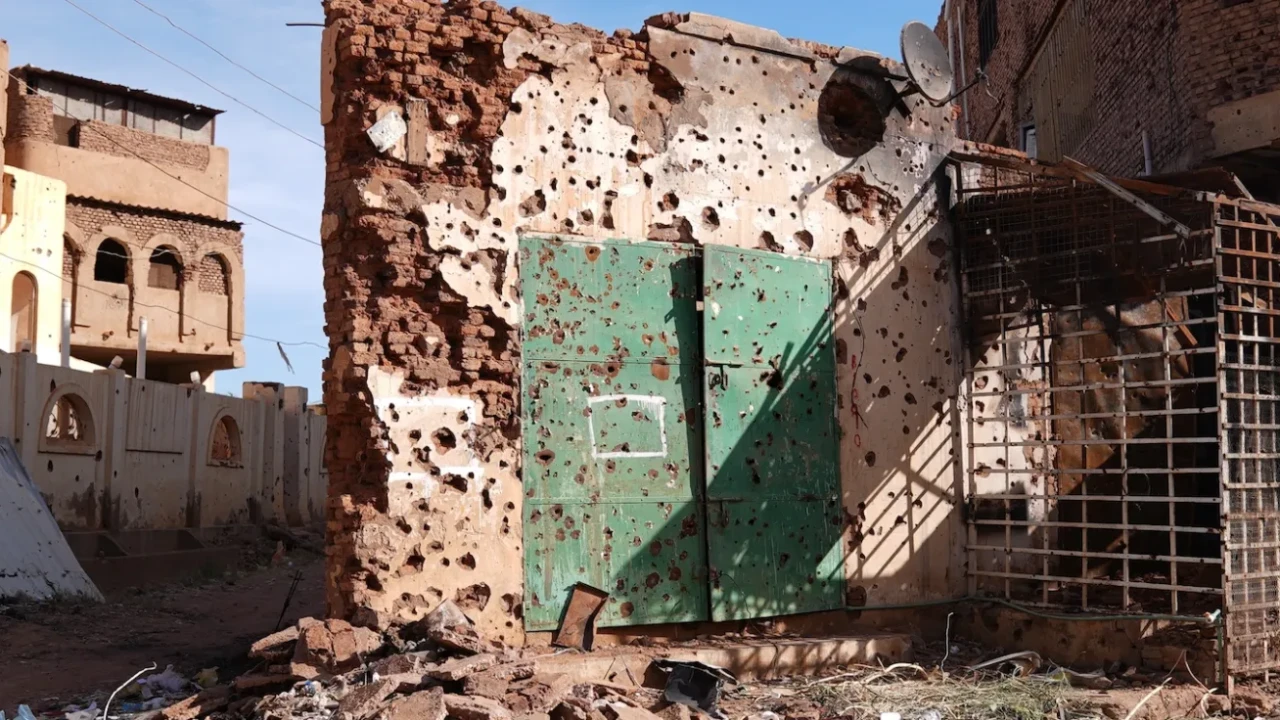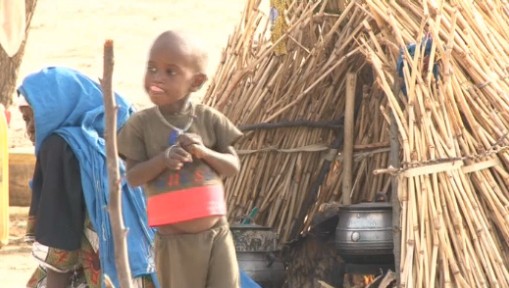
This is a modal window.
Thousands of people have taken refuge in Niger following fighting between the security forces and armed groups in north-eastern Nigeria close to the border with Niger.
Over the last few months people have fled waves of violence in three north-eastern Nigerian states (Borno, Yobue and Adamawa) to Niger, Chad and Cameroon.
Arriving in the Diffa region, in south-eastern Niger, most of the displaced are originally from Niger but have been living in Nigeria for decades. However, also among the displaced are citizens of Nigeria and other countries.
45 year old Kabo Moussa, a fish trader has built a makeshift straw house for his wife and seven children on the outskirts of Diffa town. Twenty years ago he left Niger to make his living in Nigeria but lost everything in the recent violence.
"I left everything behind when we fled", he says, "I lost all the food I had stored to feed my family".
Thousands of displaced persons have set up makeshift encampments or are living with relatives or in rented accommodation.
Nigerian mother of eight, 40 year old Fassouma Harouna is sharing a rundown house with other women and children who fled the violence.
"We ran into the bush and when we went back to our village our houses had been burnt down. We walked for 6 hours to get to safety".
The ICRC and the Niger Red Cross distributed emergency supplies and food aid during the first wave of arrivals in May and again in July when more families fled an upsurge in violence.
ICRC field officer in Diffa, Hamadou Abdou says the aid operation has been complex:
"People left in a hurry, taking nothing with them and people are still arriving so it has been difficult to manage".
The influx of displaced people has put a strain on meagre local food and water resources in a country, which struggles with recurrent food insecurity and difficult access to water. A hundred kilometres from Difa on the shores of Lake Chad, the wells had dried up, forcing the locals and the refugees to drink the water from the lake. The ICRC repaired the wells so that there was enough drinking water for everyone.
Shotlist
Location: Niger
Length: Format: Mpeg2 / 16:9 anamorphic / SD
Production: Zama Grema Ari, Claire Doole
Camera: Abdoulatif Mohamed
Sound: French and local language
ICRC ref: AV096N
Date: 20 – 22/07/2013
Copyright: ICRC access all
00:00 Travelling shot: Diffa region south- eastern Niger
00:06 Makeshift houses for refugees from Nigeria and Niger
00:27 Other makeshift houses on outskirts of Diffa town
00:37 Kabo Moussa – Niger returnee with family
00:42 SOUNDBITE – Kabo Moussa (local language)
"I left everything behind when we fled. I have lost all the food I had stored to feed my family".
01:01 Family of Nigerian refugee Fassouma Harouna in rented house
01:45 SOUNDBITE – Fassouma Harouna (Hausa, local language)
"Back there we had lots of problems. The fighting began at around 3pm and we left. We didn’t take anything with us. We fled on foot for six hours, barely stopping at all.We spent the night in the bush. When we went back our houses had been burnt down. As everything had gone up in smoke, we fled to safety"
02:05 Unloading food aid for displaced in Diffa
02:25 Queuing for distribution
02:56 Kabo Moussa registering for distribution of rice, millet, beans, cooking oil and salt)
03:05 Kabo Moussa picking up food and taking home
03:19 Kabo Moussa storing food at home
03:28 SOUNDBITE – ICRC field officer – Hamadou Abdou (French)
"Those who have left Maiduguri in a hurry they didn’t have time to take even the basics with them. They came completely destitute and this is why helping them has been extremely complicated. People are still arriving."
03:42 Red Cross trucks bringing aid.
03:58 Women drawing water from a well repaired by the ICRC.
04:19 SOUNDBITE – Returnee Lawan Mustapha (Hausa, local language)
"When we came here there was a real shortage of water. The wells didn’t have enough water for everyone. Due to the numbers of people arriving from Nigeria everyone had to drink water from Lake Chad. When the water from the Lake went down we had nothing to drink. The wells weren’t enough"
04:40 Lawan Mustapha with Red Cross by another repaired well
04:48 END
